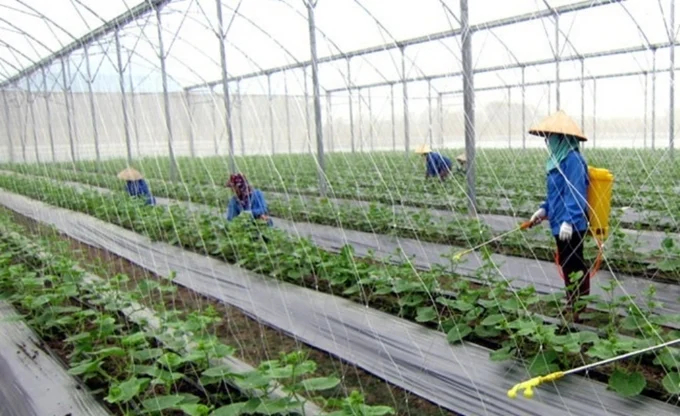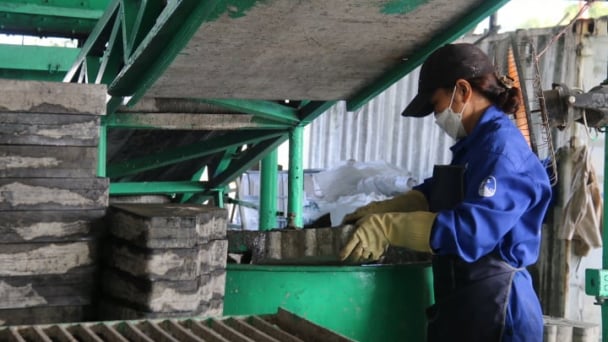May 19, 2025 | 19:56 GMT +7
May 19, 2025 | 19:56 GMT +7
Hotline: 0913.378.918
May 19, 2025 | 19:56 GMT +7
Hotline: 0913.378.918
In the first quarter of this year, the economic growth rate of Bac Giang province was estimated at 14.1%, leading the country, of which the agriculture, forestry and fisheries sectors increased by 2.1%, the industrial-construction sector increased by 18%, the service sector increased by 6.3%, and revenue from product taxes increased by 4.4%. Total domestic revenue in the province reached VND 4,678 billion, equal to 32.6% of the estimation, an increase of 11.1% over the same period in 2023.

Bac Giang's economy in the first quarter of 2024, the agriculture, forestry and fisheries sector increased by 2.1%. Photo: Documents.
In terms of attracting investment and developing businesses, Bac Giang is doing quite well. In the first quarter, the province received approval from the Prime Minister to invest in 2 more industrial parks. According to recent accumulation, this locality has a total of 10 industrial parks with a total planned area of 2,252 ha, creating jobs for hundreds of thousands of workers inside and outside the province. The whole province attracted about $ 624 million in equivalent investment capital, there were 310 newly established enterprises, an increase of 18% with a total registered capital of VND 2,598 billion.
Translated by Hoang Duy

(VAN) The German Agricultural Society (DLG) explores the possibility of establishing a mechanization service center in Vietnam’s Mekong Delta to support farmers in accessing and utilizing advanced machinery.

(VAN) On May 16, the Department of Water Resources Management, in collaboration with the Food and Agriculture Organization of the United Nations (FAO), held a signing ceremony for the GEF-8 project document.

(VAN) Food safety, mechanization, vocational training, and market opening are key areas of cooperation expected between the Vietnamese Government and the Federal Republic of Germany.

(VAN) Deputy Minister Nguyen Quoc Tri also expressed his hope that Cuba will soon overcome its current challenges, attain food security, and further expand cooperation with Vietnam.

(VAN) The project contributes to enhancing the resilience of communities vulnerable to the impacts of climate change, with a primary focus on local women.

(VAN) Green materials help save energy and resources. However, after more than 10 years, Vietnam has only developed over 200 green buildings with more than 6 million square meters of floor space.

(VAN) Vietnam - Thailand Business Forum 2025: One plus one on three connects, marking a milestone in the comprehensive strategic partnership between the two nations.